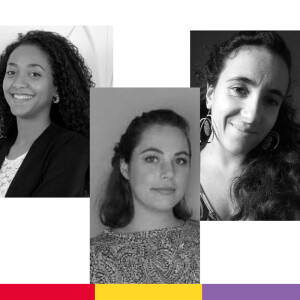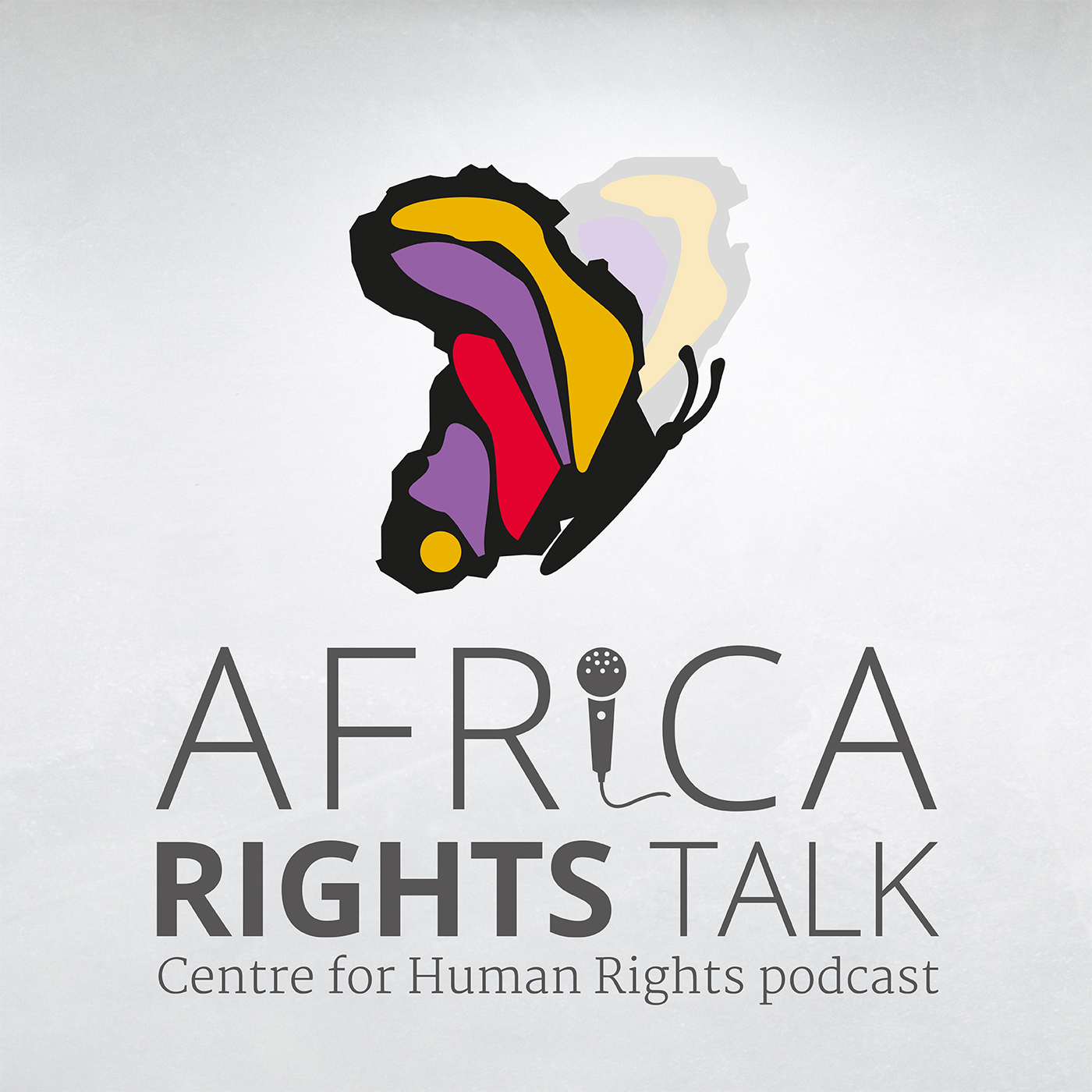Episodes

Wednesday Apr 17, 2024
S6 E7: Children's Rights and Climate Change in Africa
Wednesday Apr 17, 2024
Wednesday Apr 17, 2024
In conversation with Elsabe Boshoff, Samrawit Getaneh and Nastasia Thebaud-Bouillon-Njenga
This is a podcast series brought to you by the HRDA Alumni Task Force on Climate Justice and Rights of Future Generations in Africa, hosted under the Africa Rights Talk – Centre for Human Rights podcast. The initial aim is to produce a limited series of six podcasts that form a coherent whole, introducing some of the main challenges related to climate change and human rights in Africa. We take this opportunity to acknowledge the financial support of the European Union through the Global Campus for Human Rights.
In this podcast episode, the two speakers, Elsabe Boshoff and Samrawit Getaneh, discuss how climate change disproportionately affects children in Africa and the interlinkages between multiple systematic inequalities affecting girls and boys in their diversity. They touch on the responsibilities of African states as duty bearers to ensure children’s rights in the context of a climate changing .
Samrawit elaborates on the negative impacts of climate change due to their physical and cognitive levels of development. She highlights how children bear the brunt of the impact of anthropogenic GHC emissions. Samrawit further stresses that girls are particularly impacted by the effects of climate change, given the gender norms that affect their roles, such as helping with household chores.
Elsabe reflects on the urgency to tackle climate-related challenges in Africa based on the United Nations Children’s Fund (UNICEF) that has projected that around 125 million children could be subjected to the consequences of climate change by 2030, through displacement, water scarcity and malnutrition, which all impact on the health of the child. In addition, Elsabe points out the impacts of heatwaves on pregnant women and their fetuses, which include delayed brain development in unborn children, resulting in educational attainment and work outcomes later in life.
Finally, both speakers zoom in on some recommendations such as children empowerment and more engagement from state members. Children can be empowered to share their views on climate-related issues that directly affect them. These are through child parliaments where children get the opportunity to debate on important issues on the national agenda. It is also important that African state parties engage more with the Working Group on Children’s Rights and Climate Change under the African Committee of Experts on the Rights and Welfare of the Child (African Committee).
In this podcast episode, the two speakers, Elsabe Boshoff and Samrawit Getaneh, discuss on how climate change disproportionately affects children in Africa, and the interlinkages between multiple systematic inequalities affecting girls and boys in their diversity. They also touch on the responsibilities of African states as duty bearers with regard to ensuring the whole range of children’s human rights in the context of a changing climate.
Samrawit elaborates on the negative impacts of climate change due to their physical and cognitive levels of development. She highlights how children bear the brunt of the impact of anthropogenic GHC emissions. Samrawit further stresses that girls are particularly impacted by the effects of climate change, given the gender norms that affect their roles, such as helping with household chores.
Elsabe reflects on the urgency to tackle climate-related challenges in Africa based on the United Nations Children’s Fund (UNICEF) that has projected that around 125 million children could be subjected to the consequences of climate change by 2030, through displacement, waterscarcity and malnutrition, which all impact on the health of the child. In addition, Elsabe points out the impacts of heatwaves on pregnant women and their fetuses, which include delayed brain development in unborn children, resulting in educational attainment and work outcomes later in life.
Finally, both speakers zoom in on some recommendations such as children empowerment and more engagement from state members. Children can be empowered to share their views on climate-related issues that directly affect them. These are through child parliaments where children get the opportunity to debate on important issues on the national agenda. It is also important that African state parties engage more with the Working Group on Children’s Rights and Climate Change under the African Committee of Experts on the Rights and Welfare of the Child (African Committee).
Elsabe Boshoff (HRDA Class of 2017, South Africa) is a Doctoral Fellow at the Norwegian Centre for Human Rights (NCHR). Her PhD research focuses on the right to development in the African human rights system, particularly in the context of the extractive industries. Prior to joining the NCHR, Elsabe has worked with the African Commission on Human and Peoples’ Rights between 2017 to 2020.
Samrawit Getaneh (HRDA Class of 2016, Ethiopia) is a Senior Child Rights Protection Officer at the African Committee. She is particularly interested in mechanisms of human rights protection, the protection of the rights of vulnerable groups and minority groups, the nexus between human rights and development as well as climate change and human rights. She is also a current PhD researcher at the University of the Western Cape.
Nastasia Thebaud-Bouillon-Njenga (HRDA Class of 2015, France/Kenya) is a human rights attorney and a consultant in climate justice, gender equality, the right to food and children’s rights. She is the founder of Ujasiri Human Rights consultancy, an NGO providing advocacy, training and research consultancy services to civil society actors.
This conversation was recorded on 22 March 2024.


No comments yet. Be the first to say something!